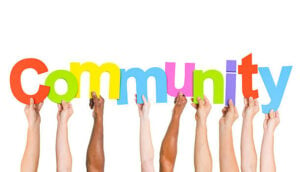Empowering young people isn’t just about teaching them skills or giving them advice—it’s about helping them believe in themselves and their potential. At Lexia Education Services, we believe mentorship is one of the most effective ways to achieve this. A good mentor does more than share knowledge; they provide guidance, encouragement, and support that can shape a young person’s journey in meaningful ways.
So, what does empowerment through mentorship look like, and how can it make a real difference in a young person’s life? Let’s break it down.
Why Mentorship Matters
For young people, the transition from childhood to adulthood can feel overwhelming. They’re figuring out who they are, what they want, and how to navigate life’s challenges. Mentors can act as a steadying presence during this time, offering guidance that helps them grow into confident, capable individuals.
Mentorship works because it’s personal. It’s about building a relationship where a young person feels truly seen, heard, and supported. When they know someone believes in them, they start believing in themselves—and that’s where empowerment begins.
The Key Methods of Effective Mentorship
Empowering young people through mentorship isn’t just about showing up; it’s about showing up in the right way. Here are some key elements that make mentorship impactful:
1. Active Listening
A great mentor listens more than they talk. By taking the time to really understand a young person’s thoughts, feelings, and goals, mentors create a safe space where they can open up without fear of judgment.
2. Encouragement and Validation
Young people often doubt themselves, especially when trying something new. A mentor’s encouragement can be the difference between giving up and pushing forward. Validating their efforts—no matter how small—helps build confidence and resilience.
3. Guidance Without Control
Mentorship isn’t about telling someone what to do; it’s about helping them figure it out for themselves. By asking thoughtful questions and offering perspective, mentors guide young people toward making their own decisions, fostering independence and critical thinking.
4. Setting an Example
Young people learn a lot by watching the people they admire. Mentors who lead by example—showing integrity, perseverance, and kindness—teach valuable life lessons without saying a word.
5. Consistency and Reliability
One of the most empowering things a mentor can do is simply show up, time and time again. Consistency builds trust, which is the foundation of any meaningful mentorship relationship.
The Benefits of Mentorship for Young People
When mentorship is done right, the impact is profound. Here’s how it can empower young people:
1. Boosting Confidence
Many young people struggle with self-doubt, especially when facing new challenges. A mentor’s belief in their abilities can help them see their own potential, giving them the courage to take risks and try new things.
2. Building Resilience
Life isn’t always easy, and setbacks are inevitable. Mentors can help young people navigate tough times, teaching them how to cope with failure and bounce back stronger.
3. Developing Skills
Whether it’s communication, decision-making, or problem-solving, mentors help young people build the skills they need to succeed in life and work.
4. Expanding Horizons
A good mentor introduces young people to new ideas, opportunities, and perspectives they might not encounter otherwise. This can open doors and inspire them to dream bigger.
5. Fostering Independence
Ultimately, mentorship is about helping young people stand on their own two feet. By empowering them to make decisions and take ownership of their journey, mentors set them up for long-term success and help young people achieve their goals.
How You Can Empower Young People
Whether you’re a teacher, a coach, a parent, or just someone who wants to make a difference, you have the potential to become a mentor. Here are some simple ways to start:
- Be Present: Sometimes, all it takes is your time and attention to make a young person feel valued.
- Ask Questions: Get to know their hopes, fears, and aspirations. Showing genuine interest goes a long way.
- Share Your Experiences: Your successes—and failures—can be valuable learning moments.
- Celebrate Their Wins: No matter how big or small, acknowledge their achievements and efforts.
- Encourage Their Growth: Push them to step out of their comfort zone and take on new challenges.
Take a look at our blog on how to become a mentor with a step-by-step guide to starting your journey to empowering young minds!
Mentorship: A Ripple Effect
The beauty of mentorship is that its impact doesn’t stop with the individual. Empowered young people grow into empowered adults who go on to inspire and support others. It’s a ripple effect that can shape families, communities, and even the world.
So, whether you’re mentoring one young person or creating programs to support many, know that your efforts matter. You’re not just helping them succeed today—you’re empowering them to build a brighter future for themselves and everyone they touch.



